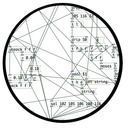Fresh Pd 0.50.2 install comes with broken libs and deken installs broken libs
@seb-harmonik.ar said:
@ddw_music said:
One way that this could be improved:
- Per patch file, keep a list of which locations have provided externals or abstractions.
- If it's the first time this subdirectory provided an object to this patch file, print a message in the console (help the user not overlook the dependency).
I don't think this is a good idea. It would clog up the console...
My two quoted suggestions here go together: If the patch object has a list internally of its dependencies, then it's possible to report a dependency only the first time it's accessed in a given patch file. If I open a new patch and create a [gate] and later a [play~], I would want to see a message about cyclone only once per patch file, not per cyclone object. Obviously the latter would be clutter but my suggestion as worded was intended to avoid excessive clutter: "If it's the first time this subdirectory provided an object to this patch file..."
- If there is a binary library in the access path, load it automatically. Do not make the user distinguish between lib and path.
I realized later that there's a flaw to this logic: you don't know which objects a library binary provides without loading the binary -- so in practice, object search might need to load all binaries  Of course that would not be ok. It may be a solvable problem, if there's some way for a binary to make an object manifest known without fully initializing.
Of course that would not be ok. It may be a solvable problem, if there's some way for a binary to make an object manifest known without fully initializing.
^^ This explains why search is non-recursive, so I'll have to drop my earlier comment about that.
- Have a menu option to print a list of dependencies. (If the list of external subdirectories is saved in the patch, this is easy.)
maybe there could be some kind of helper object or something in
[pdcontrol]or[declare]that gets a list of all of the library or external dependencies of a patch when the user needs them. (or maybe some external would be better).
Sure, that would work. There's not a substantive difference between those approaches.
FWIW SuperCollider's "greedy" approach to loading extensions isn't totally ideal either -- because method dispatch is resolved at runtime, there's no way to know by scanning code whether a method call will hit an extension, or which one. I've been bitten by this more times than I can count. That's one reason why I switched my Pd teaching over to use [declare].
The -lib vs -path thing, though... sheesh, it's like "let's deliberately annoy users and drive them away" -- and that pull request is hilarious -- "hmm, but what if you want to declare a library that is called -path?" Really? This kind of bizarre hypothetical is why they would question an honest attempt to make life easier for users? "Oh, let's push this idea into limbo because of something that nobody with an ounce of common sense would ever do" 
hjh
Scale something to something pretty and efficient
Because $f1 is already floating point, you gain nothing by multiplying by 1000000. That might be useful in the integer domain, but floating point numbers "shift" their full precision based on the magnitude, so it's a wasted operation.
Then, dividing by 1000000 is the same as multiplying by 0.000001. These are convenient numbers in decimal, but they are repeating fractions in binary floating point (like 1/7 = 0.142847142847...) so... you thought multiplying and dividing would give you extra precision but in fact, you've just introduced extra rounding error. This probably explains why it never reaches 1. (This is a very common misconception with floating point numbers. We tend to assume that a finite decimal should also be a finite float, but computer floats are binary. Any rational number where the denominator's prime factors are 2 and 5 will be finite in decimal, but a factor of 5 in the denominator will create an infinitely repeating binary representation, so 0.1 decimal is 1.1001100110011... x 2^(-4) in binary -- it's no more precise than 0.3333 in decimal or binary.)
hjh
iemlib in vanilla? deken? compiling?
@jameslo Pd assigns separate binaries a namespace when an object has been created in a patch.
It doesn't need to search for them again for another creation. You will see a success in the log without a search on the second creation.
Most externals find their separate binaries when the object is created by a search for the name of the binary (it has the same name) in the search paths.
But some libraries have a single binary pack that contains many externals and so they have to be loaded at startup when all the namespaces for their externals are declared. Then when an object from that single binary pack is created it can be found. Otherwise creation fails because the name cannot be found by a search.
Some libraries contain both a single binary pack and multiple separate binaries.
More here........ http://msp.ucsd.edu/Pd_documentation/x4.htm
David.
Converting audio signals to binary with no externals ?
@Boran-Robert what do you mean "already in binary form"? All numbers/audio are already in binary form internally, but when you type them in number boxes or have them displayed or printed they are converted to/from decimal.. so in your example with binary numbers those numbers are actually decimal numbers if you would type them into boxes in pd, and indeed if you run your example with trying to use binary numbers you will see that the output has non-binary digits
vstplugin~ 0.2.0
[vstplugin~] v0.2.0
WARNING: on macOS, the VST GUI must run on the audio thread - use with care!
searching in '/Users/boonier/Library/Audio/Plug-Ins/VST' ...
probing '/Users/boonier/Library/Audio/Plug-Ins/VST/BreakBeatCutter.vst'... failed!
probing '/Users/boonier/Library/Audio/Plug-Ins/VST/Camomile.vst'... failed!
probing '/Users/boonier/Library/Audio/Plug-Ins/VST/Euklid.vst'... failed!
probing '/Users/boonier/Library/Audio/Plug-Ins/VST/FmClang.vst'... failed!
probing '/Users/boonier/Library/Audio/Plug-Ins/VST/Micropolyphony.vst'... failed!
probing '/Users/boonier/Library/Audio/Plug-Ins/VST/PhaserLFO.vst'... failed!
probing '/Users/boonier/Library/Audio/Plug-Ins/VST/pvsBuffer.vst'... failed!
probing '/Users/boonier/Library/Audio/Plug-Ins/VST/smGrain3.vst'... failed!
probing '/Users/boonier/Library/Audio/Plug-Ins/VST/smHostInfo.vst'... failed!
probing '/Users/boonier/Library/Audio/Plug-Ins/VST/smMetroTests.vst'... failed!
probing '/Users/boonier/Library/Audio/Plug-Ins/VST/smModulatingDelays.vst'... failed!
probing '/Users/boonier/Library/Audio/Plug-Ins/VST/smTemposcalFilePlayer.vst'... failed!
probing '/Users/boonier/Library/Audio/Plug-Ins/VST/smTrigSeq.vst'... failed!
probing '/Users/boonier/Library/Audio/Plug-Ins/VST/SoundwarpFilePlayer.vst'... failed!
probing '/Users/boonier/Library/Audio/Plug-Ins/VST/SpectralDelay.vst'... failed!
probing '/Users/boonier/Library/Audio/Plug-Ins/VST/SyncgrainFilePlayer.vst'... failed!
probing '/Users/boonier/Library/Audio/Plug-Ins/VST/Vocoder.vst'... failed!
found 0 plugins
searching in '/Library/Audio/Plug-Ins/VST' ...
probing '/Library/Audio/Plug-Ins/VST/++bubbler.vst'... failed!
probing '/Library/Audio/Plug-Ins/VST/++delay.vst'... failed!
probing '/Library/Audio/Plug-Ins/VST/++flipper.vst'... failed!
probing '/Library/Audio/Plug-Ins/VST/++pitchdelay.vst'... failed!
probing '/Library/Audio/Plug-Ins/VST/ABL2x.vst'... failed!
probing '/Library/Audio/Plug-Ins/VST/BassStation.vst'... failed!
probing '/Library/Audio/Plug-Ins/VST/BassStationStereo.vst'... failed!
probing '/Library/Audio/Plug-Ins/VST/Camomile.vst'... failed!
probing '/Library/Audio/Plug-Ins/VST/Crystal.vst'... failed!
probing '/Library/Audio/Plug-Ins/VST/Ctrlr.vst'... failed!
probing '/Library/Audio/Plug-Ins/VST/Dexed.vst'... failed!
probing '/Library/Audio/Plug-Ins/VST/Driftmaker.vst'... failed!
probing '/Library/Audio/Plug-Ins/VST/GTune.vst'... failed!
probing '/Library/Audio/Plug-Ins/VST/Independence FX.vst'... failed!
probing '/Library/Audio/Plug-Ins/VST/Independence.vst'... failed!
probing '/Library/Audio/Plug-Ins/VST/JACK-insert.vst'... failed!
probing '/Library/Audio/Plug-Ins/VST/Lua Protoplug Fx.vst'... failed!
probing '/Library/Audio/Plug-Ins/VST/Lua Protoplug Gen.vst'... failed!
probing '/Library/Audio/Plug-Ins/VST/mda Ambience.vst'... failed!
probing '/Library/Audio/Plug-Ins/VST/mda Bandisto.vst'... failed!
probing '/Library/Audio/Plug-Ins/VST/mda BeatBox.vst'... failed!
probing '/Library/Audio/Plug-Ins/VST/mda Combo.vst'... failed!
probing '/Library/Audio/Plug-Ins/VST/mda De-ess.vst'... failed!
probing '/Library/Audio/Plug-Ins/VST/mda Degrade.vst'... failed!
probing '/Library/Audio/Plug-Ins/VST/mda Delay.vst'... failed!
probing '/Library/Audio/Plug-Ins/VST/mda Detune.vst'... failed!
probing '/Library/Audio/Plug-Ins/VST/mda Dither.vst'... failed!
probing '/Library/Audio/Plug-Ins/VST/mda DubDelay.vst'... failed!
probing '/Library/Audio/Plug-Ins/VST/mda DX10.vst'... failed!
probing '/Library/Audio/Plug-Ins/VST/mda Dynamics.vst'... failed!
probing '/Library/Audio/Plug-Ins/VST/mda ePiano.vst'... failed!
probing '/Library/Audio/Plug-Ins/VST/mda Image.vst'... failed!
probing '/Library/Audio/Plug-Ins/VST/mda Leslie.vst'... failed!
probing '/Library/Audio/Plug-Ins/VST/mda Limiter.vst'... failed!
probing '/Library/Audio/Plug-Ins/VST/mda Looplex.vst'... failed!
probing '/Library/Audio/Plug-Ins/VST/mda Loudness.vst'... failed!
probing '/Library/Audio/Plug-Ins/VST/mda MultiBand.vst'... failed!
probing '/Library/Audio/Plug-Ins/VST/mda Overdrive.vst'... failed!
probing '/Library/Audio/Plug-Ins/VST/mda Piano.vst'... failed!
probing '/Library/Audio/Plug-Ins/VST/mda RePsycho!.vst'... failed!
probing '/Library/Audio/Plug-Ins/VST/mda RezFilter.vst'... failed!
probing '/Library/Audio/Plug-Ins/VST/mda RingMod.vst'... failed!
probing '/Library/Audio/Plug-Ins/VST/mda RoundPan.vst'... failed!
probing '/Library/Audio/Plug-Ins/VST/mda Shepard.vst'... failed!
probing '/Library/Audio/Plug-Ins/VST/mda Splitter.vst'... failed!
probing '/Library/Audio/Plug-Ins/VST/mda Stereo.vst'... failed!
probing '/Library/Audio/Plug-Ins/VST/mda SubBass.vst'... failed!
probing '/Library/Audio/Plug-Ins/VST/mda TestTone.vst'... failed!
probing '/Library/Audio/Plug-Ins/VST/mda ThruZero.vst'... failed!
probing '/Library/Audio/Plug-Ins/VST/mda Tracker.vst'... failed!
probing '/Library/Audio/Plug-Ins/VST/mda Transient.vst'... failed!
probing '/Library/Audio/Plug-Ins/VST/mda VocInput.vst'... failed!
probing '/Library/Audio/Plug-Ins/VST/mda Vocoder.vst'... failed!
probing '/Library/Audio/Plug-Ins/VST/mdaJX10.vst'... failed!
probing '/Library/Audio/Plug-Ins/VST/mdaTalkBox.vst'... failed!
probing '/Library/Audio/Plug-Ins/VST/ME80v2_3_Demo.vst'... failed!
probing '/Library/Audio/Plug-Ins/VST/Metaplugin.vst'... failed!
probing '/Library/Audio/Plug-Ins/VST/MetapluginSynth.vst'... failed!
probing '/Library/Audio/Plug-Ins/VST/Molot.vst'... failed!
probing '/Library/Audio/Plug-Ins/VST/Nektarine.vst'... failed!
probing '/Library/Audio/Plug-Ins/VST/Nektarine_32OUT.vst'... failed!
probing '/Library/Audio/Plug-Ins/VST/Nithonat.vst'... failed!
probing '/Library/Audio/Plug-Ins/VST/Obxd.vst'... failed!
probing '/Library/Audio/Plug-Ins/VST/Ozone 8 Elements.vst'... failed!
probing '/Library/Audio/Plug-Ins/VST/PlogueBiduleVST.vst'... failed!
probing '/Library/Audio/Plug-Ins/VST/PlogueBiduleVST_16.vst'... failed!
probing '/Library/Audio/Plug-Ins/VST/PlogueBiduleVST_32.vst'... failed!
probing '/Library/Audio/Plug-Ins/VST/PlogueBiduleVST_64.vst'... failed!
probing '/Library/Audio/Plug-Ins/VST/PlogueBiduleVSTi.vst'... failed!
probing '/Library/Audio/Plug-Ins/VST/PlogueBiduleVSTi_16.vst'... failed!
probing '/Library/Audio/Plug-Ins/VST/PlogueBiduleVSTi_32.vst'... failed!
probing '/Library/Audio/Plug-Ins/VST/PlogueBiduleVSTi_64.vst'... failed!
probing '/Library/Audio/Plug-Ins/VST/sforzando.vst'... failed!
probing '/Library/Audio/Plug-Ins/VST/Sonic Charge/Cyclone FX.vst'... failed!
probing '/Library/Audio/Plug-Ins/VST/Sonic Charge/Cyclone.vst'... failed!
probing '/Library/Audio/Plug-Ins/VST/Soundtoys/Devil-Loc.vst'... failed!
probing '/Library/Audio/Plug-Ins/VST/Soundtoys/LittlePlate.vst'... failed!
probing '/Library/Audio/Plug-Ins/VST/Soundtoys/LittleRadiator.vst'... failed!
probing '/Library/Audio/Plug-Ins/VST/Soundtoys/SieQ.vst'... failed!
probing '/Library/Audio/Plug-Ins/VST/SPAN.vst'... failed!
probing '/Library/Audio/Plug-Ins/VST/Spitter2.vst'... failed!
probing '/Library/Audio/Plug-Ins/VST/Surge.vst'... failed!
probing '/Library/Audio/Plug-Ins/VST/Synth1.vst'... failed!
probing '/Library/Audio/Plug-Ins/VST/TAL-Chorus-LX.vst'... failed!
probing '/Library/Audio/Plug-Ins/VST/TAL-Reverb-2.vst'... failed!
probing '/Library/Audio/Plug-Ins/VST/TAL-Reverb-3.vst'... failed!
probing '/Library/Audio/Plug-Ins/VST/TAL-Reverb-4.vst'... failed!
probing '/Library/Audio/Plug-Ins/VST/TAL-Sampler.vst'... failed!
probing '/Library/Audio/Plug-Ins/VST/TX16Wx.vst'... failed!
probing '/Library/Audio/Plug-Ins/VST/u-he/Diva.vst'... failed!
probing '/Library/Audio/Plug-Ins/VST/u-he/Protoverb.vst'... failed!
probing '/Library/Audio/Plug-Ins/VST/u-he/Repro-1.vst'... failed!
probing '/Library/Audio/Plug-Ins/VST/u-he/Repro-5.vst'... failed!
probing '/Library/Audio/Plug-Ins/VST/u-he/Satin.vst'... failed!
probing '/Library/Audio/Plug-Ins/VST/u-he/TyrellN6.vst'... failed!
probing '/Library/Audio/Plug-Ins/VST/u-he/Zebra2.vst'... failed!
probing '/Library/Audio/Plug-Ins/VST/u-he/Zebralette.vst'... failed!
probing '/Library/Audio/Plug-Ins/VST/u-he/Zebrify.vst'... failed!
probing '/Library/Audio/Plug-Ins/VST/u-he/ZRev.vst'... failed!
probing '/Library/Audio/Plug-Ins/VST/UltraChannel.vst'... failed!
probing '/Library/Audio/Plug-Ins/VST/ValhallaFreqEcho.vst'... failed!
probing '/Library/Audio/Plug-Ins/VST/ValhallaRoom_x64.vst'... failed!
probing '/Library/Audio/Plug-Ins/VST/VCV-Bridge-fx.vst'... failed!
probing '/Library/Audio/Plug-Ins/VST/VCV-Bridge.vst'... failed!
probing '/Library/Audio/Plug-Ins/VST/WaveShell1-VST 10.0.vst'... failed!
found 0 plugins
searching in '/Users/boonier/Library/Audio/Plug-Ins/VST3' ...
found 0 plugins
searching in '/Library/Audio/Plug-Ins/VST3' ...
probing '/Library/Audio/Plug-Ins/VST3/TX16Wx.vst3'... error
couldn't init module
probing '/Library/Audio/Plug-Ins/VST3/WaveShell1-VST3 10.0.vst3'... error
factory doesn't have any plugin(s)
probing '/Library/Audio/Plug-Ins/VST3/Nektarine.vst3'... failed!
probing '/Library/Audio/Plug-Ins/VST3/Nektarine_32OUT.vst3'... failed!
probing '/Library/Audio/Plug-Ins/VST3/OP-X PRO-II.vst3'... failed!
probing '/Library/Audio/Plug-Ins/VST3/SPAN.vst3'... failed!
probing '/Library/Audio/Plug-Ins/VST3/Surge.vst3'... failed!
probing '/Library/Audio/Plug-Ins/VST3/Zebra2.vst3'...
[1/4] 'Zebrify' ... failed!
[2/4] 'ZRev' ... failed!
[3/4] 'Zebra2' ... failed!
[4/4] 'Zebralette' ... failed!
found 0 plugins
search done
print: search_done
16 step sequences using simple serial float to binary conversion
The concept is rather simple. Each number between 0 and 2^16 -1, has a unique 16 bit binary representation. Now, instead of arrays and shit suppose you want a bass drum to go || : DUM . . . . . . DA DUM . DUM . . . . . : || - that would be 1000000110100000 in serial binary representation. And in decimal / float, that would be 1409.
Now suppose you have a counter going from 0 to 15 for every bar, you can use that to power up 2^n and have the binaries spit out as ones and zeores in sync.
That's what PReader.pd does. You provide the count and the seed. Preader spits out a loop of zeores and ones useful for triggering anything. All in the message domain.
Now, for those of us who don't calculate back and forth between binary and decimal, I made a simple seed calculator too. You on/off the binary toggles and get the float seed.
Once you have the seeds, get rid of the Pwriter. It's just here for you to quickly get from graphic representation (binary) to decimal sead for the reader. Use messages to seeed your reader, i.e.: [1409< etc. You can have other counters control different seed messages to the same reader and so forth.
This is all very simple, but I find it extremely useful for sequencing, rather than setting up complex matrices of this and that with multiple arrays. The gordian knot and KISS and all that jazz.
Carriage return in messages from Pd to Arduino?
"print" translates all characters in a message to their ASCII bytes. So, sending "print 0p100v" to [comport], will result in 48 112 49 48 48 118 sent to the Arduino. Check ASCII table to understand this in case you don't know ASCII.
Sending floating point values to control PWM doesn't really make much sense since PWM takes bytes, so integer values from 0 to 255. I don't know if "print" will actually break a floating point value and translate the dot as well (which is ASCII 46). If you want to send floating point values to the Arduino, you should make sure the dot gets translated to ASCII (if it's not done with "print" you should probably do it with [list fromsymbol]) and then in the Arduino code look for byte 46 and do the necessary math to assemble the floating point value.
PD-Vanilla will not load PD-Externals--Mint Linux
Hello,
I did a writeup on this sort of thing awihle go... http://puredata.info/Members/derekxkwan/pdext-to-pd/ Essentially, you need to specify the folder that the externals are in. At least Cyclone contains binaries separate from the binary that has all the signal binops, so if you want something like [round], you have to type basically the relative path from something in your path to the object, so at least how it's laid own in the package downloader, [cyclone/round]. Zexy should be one binary though and you can load that with [declare] or load at startup via preferences (and once the binary is loaded, all the objects are in your "namespace" so if you want [swap~], you just type [swap~}, also I think Pd automatically searches subfolders for self-titled binaries)
xy: Abstraction to get mouse click and drag coordinates (vanilla)
@Balwyn yes, hiding the array names was tricky. Only late in the process i realized that they wouldn't go away so easily and thought this would destroy the whole project.  As they apparently cannot be turned off, i needed invisible names instead that would still contain $0 to be unique across different instances. So the idea was to take $0, combine it with a number for each array and convert it to binary, but with spaces instead of 0 and 1. i found this thread about putting spaces into symbols. Luckily there are two spaces in ASCII, that i needed to make unique symbols out of binary numbers.
As they apparently cannot be turned off, i needed invisible names instead that would still contain $0 to be unique across different instances. So the idea was to take $0, combine it with a number for each array and convert it to binary, but with spaces instead of 0 and 1. i found this thread about putting spaces into symbols. Luckily there are two spaces in ASCII, that i needed to make unique symbols out of binary numbers.
The conversion takes place in the two subpatches [pd uniqueInvisible]. They take a number, add $0 multiplied by 1000 (10 would have been enough) and convert this into binary, using 32 and 160 (the ASCII spaces) instead of 0 and 1. The result is a list of 32s and 160s that is converted to a symbol by [list tosymbol]. So the symbol is made out of two different spaces, representing a number containing $0 in binary form. 
This is based on [baseconverter] which i made a while ago.
Purr Data rc5
Purr Data release candidate 5!
- small fixes to OSX app bundle name and build instructions
- fixed OSX app bundle name
- fixed GUI errors with some GUI objects on GOP
- use cat icon for patches
- fixed a [grid] crasher with binding symbol leak
- fixed [grid] line drawing bug and GOP xlet display
- added dialog and scale handle for [grid]
- ported moonlib/knob
- get rid of some extraneous debugging messages
- allow to install Purr Data alongside Pd-l2ork
- Scope~ code cleanup
- fixes for arm build
- added some OSX app bundle dependencies for [fluid~] and others
- fix saving preferences under OSX
- added startup paths and libs to preferences dialog
- use "Purr Data" in OSX menu app
- help browser fixes
- fixed MIDI preference saving on OSX and Windows
- added a "Recent Files" menu to the "File" menu
- get consistent behavior for present working directory when opening/saving files
- fix Volume name for OSX dmg installer
- try to standardize a deterministic package name when compiling Purr Data
- add a Pd-l2ork-specific version number
- add command line open args to "Recent Files" list
- fixed crasher with ds "canvas" field
- allow saving the zoom level per canvas
please report lots of bugs to
https://git.purrdata.net/jwilkes/purr-data/issues
Binaries:







